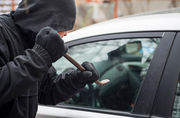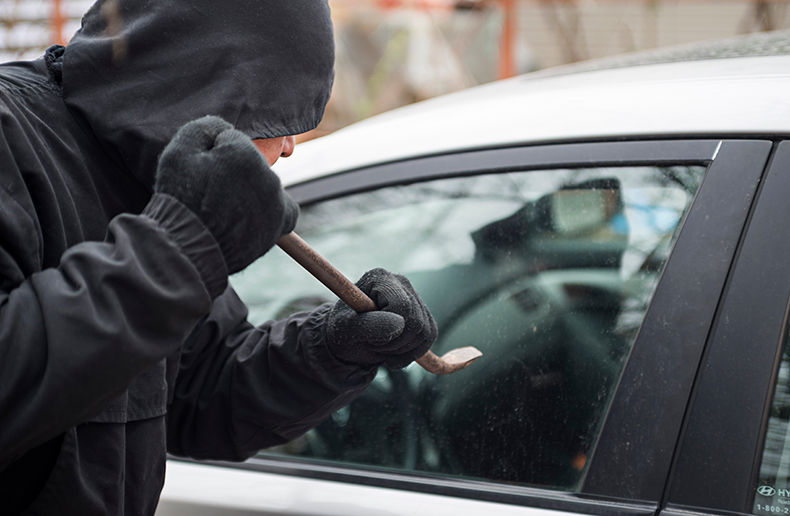In February 2021, police officers descended on Lamborghini Montreal, in Kirkland, to conduct a search. The dealership was one of six businesses, including two other car rental dealerships, and ten homes visited by investigators from the Sûreté du Québec’s organized crime enforcement squad (ENRCO).
The companies raided were suspected of being used for money laundering, media reports indicate.
Also, in connection with this case, in March and April 2022, ENRCO arrested several individuals, including a member of the Hell’s Angels. Six of the suspects arrested on April 21 appeared at the Montreal courthouse that day to face several charges, mostly related to drug trafficking.
Inertia
A consumer who needs $200,000 to buy a home can expect a lending institution to at least do a credit check before disbursing the funds. But when it comes to luxury cars valued at the same amount, this does not always appear to be the case.
According to an industry expert who prefers to remain anonymous, the inertia of several organizations enables criminal networks to steal luxury cars. These vehicles are then sold abroad at a high price. Sometimes the accomplices to the theft are brazen enough to report the vehicle stolen to the auto insurer.
The lack of scrutiny by all parties involved fuels this insurance fraud, our source explains. Luxury vehicles leased or purchased here are resold at a much higher price abroad because there are tight restrictions on marketing them in several countries, in the form of high tariffs or embargoes.
Insurance Portal spoke to people who unveiled the methods used by criminal networks. They also confirmed the scheme outlined by our confidential source.
First, vehicles involved in crime are taken out of the dealership under a false identity. Theoretically, the customer should not have been granted financing to purchase the vehicle because they lack a credit history.
In this case, the fraud is perpetrated by the dealer or one of its employees, or by the criminals who provided the so-called purchaser with a false identity.
Insurers require that these high-value cars be equipped with tracking devices. However, if there is no theft report, the tracking system data cannot be used: Only the insured or third parties to the contract can request it.
If a vehicle is detained at customs, in principle, the border services cannot seize it if it has not been reported as stolen.
The tracking system is installed in the customer’s name, not the dealer’s. A buyer who has used false papers to purchase the vehicle will probably not report the theft.
Delayed reporting
We asked Équité Association whether the claims made by our anonymous source were plausible. Investigator Jacques Lamontagne points out that on average each year, eight to ten cars worth $200,000 or more are found in containers at the Port of Montreal, out of the approximately 1,000 vehicles that are recovered there.
Équité Association was created in 2021 when the teams of investigators from the Insurance Bureau of Canada and Canatics, a firm that specializes in collecting data to identify fraud risks, joined forces. When its investigators discover a vehicle in a container, they do not report the crime to the police.
“We contact the dealer or whatever owner we can find. We simply ask them if their vehicle should be in a sea container for export. Occasionally, the dealer will then discover the theft or decide to report it stolen,” explains Lamontagne.
Most of the luxury vehicles found in a container were leased. “Was the dealer really aware that it was stolen? I can’t tell you that. They report it stolen following our call. Were there insurance premiums on these vehicles? Not always,” he adds.
Dealers are sometimes duped by customers who use a false identity. This fictitious individual invariably has a huge income. The customers visit the dealership in person and pay a security deposit of $40,000 to $60,000. They then sign a 24-month lease at $6,000 per month.
“To take the vehicle off the lot, the customer needs proof of insurance. This is also obtained under a false name, the same one used for the financing, so it is not valid. Once it leaves the dealership, the vehicle is put in a container for export,” Jacques Lamontagne explains.
The dealer, the bank, or the insurer discovers the fraud when the “customer” stops paying the lease, loan payment or insurance premium, a few weeks or months after taking possession of the vehicle, which has already been shipped abroad.
If the vehicle was reported stolen when the container was seized, Équité Association will have an appraisal conducted to verify that it has not been tampered with, that the key parts have not been modified, and that it is still roadworthy in Quebec.
“After that, we return it to its rightful owner, which can be the insurer, the dealer or a private individual. In our business, we see everything. Sometimes the individual doesn’t report the vehicle stolen right away. Again, I leave it to the police investigation to determine if the story is legitimate or not,” Lamontagne continues.
Already in a container
The first step is to request the tracking information for the vehicle. In verifying the consumer’s account, the insurer or bank quite often finds that the theft is reported on a given date, but the vehicle was already in a container at the Port of Montreal well before that.
Often, had the dealer performed a routine check, it would have realized that this customer could not afford to purchase the car. If the bank allows the dealership to lend the money required for the purchase without doing any due diligence, it is also complicit through its inaction.
Many think financial institutions are remiss in permitting financing managers at dealerships to grant loans for luxury vehicles. The bank bears some of the responsibility for ensuring that the transaction is legitimate.
Dealers have little to lose if vehicles are stolen: The lender or insurer must absorb the loss.
“All policyholders pay for this fraud, not only because higher claim volume raises premiums, but so do legal costs when the insurer decides to sue one of the parties in the transaction who is suspected of fraud,” our source explains.
Contacted by Insurance Portal, Robert Vieira, who works in the claims department at Aviva Canada, points out that in cases where the consumer is suspected of abetting the theft, it is either because he or she is no longer able to pay the installments or because the criminals offered that person money to get their hands on the vehicle.
“Obviously, if the vehicle is found in a container but was not reported stolen, we push our investigation a little further,” he said.
When the vehicle owner is in on the scheme, the thieves recommend waiting a few days before reporting the theft, to ensure that the container has left the port. “Once it’s at sea, there’s nothing you can do,” Vieira notes.
The story continues
The February 2021 seizure is still making waves today. On August 16 at 7:45 p.m., a bullet impact broke a window of a dealership located at 4475 Metropolitan Boulevard East in Saint-Léonard. The business specializes in sales of luxury and vintage cars.
The Service de police de la Ville de Montréal (SPVM) declined to comment on the investigations. Public relations officer Caroline Labelle told Insurance Portal that investigations for this incident are underway, along with two other crimes that allegedly occurred in establishments operated by the same owner’s family.
On June 4, 2022, two vehicles were set on fire in the yard of a car dealership located on Provencher Boulevard near Jarry, also in Saint-Léonard. The SPVM states that the fire is “possibly of criminal origin.”
On Aug. 1, 2022, a bullet hole was found at another car dealership located on the Highway 40 service road near Stillview Avenue in Kirkland, the SPVM reports.
Another network dismantled
On July 28, Équité Association and several Ontario police forces announced that they dismantled a major auto theft ring. The ring was altering vehicle identification numbers (VIN) before reselling the vehicles to private buyers. Most of the cars recovered were stolen in Ontario.
As part of Project Myra, launched in September 2020, investigators recovered 214 stolen vehicles with an estimated value of more than $12 million.
Three organizations played pivotal roles in the theft. The first criminal organization, based in Peel County, was responsible for re-vinning (altering VINs) of stolen cars prior to resale. The second organization, based in Durham Region and Toronto, altered the paperwork on stolen cars in Saskatchewan to facilitate their resale in Ontario or their use by criminal networks. The third criminal organization in the network was based in York Region. It also altered the VINs on stolen cars before registering them in Ontario for resale or use in other crimes.
Saskatchewan police were called in, and about 28 individuals from both provinces were arrested on July 19 and 20. They were charged with a total of 242 offences. Four of these individuals were employed by the Ontario government and are suspected of having aided and abetted these criminal networks by assisting with the illegitimate registration of stolen vehicles.
Other police forces as well as several Ontario government departments and agencies were involved in Project Myra. After executing 44 search warrants, police seized firearms, different quantities of various drugs (fentanyl, cocaine, cannabis, psilocybin, etc.), along with two laser machines used to mark stolen cars, plus C$160,000 and US$8,400.
Many of the vehicles recovered were high-end cars. They include a Lamborghini Urus ($200,000) and an Acura NSX ($150,000). About 37 per cent of the vehicles recovered were Honda/Acura.
In 2021, Équité Association recovered 1,193 stolen vehicles with an estimated value of $45.6 million at the ports of Montreal and Halifax.
The average auto insurance premium in Quebec was $732 in 2020. Theft of a $200,000 car amounts to the premiums of 273 clients.
















